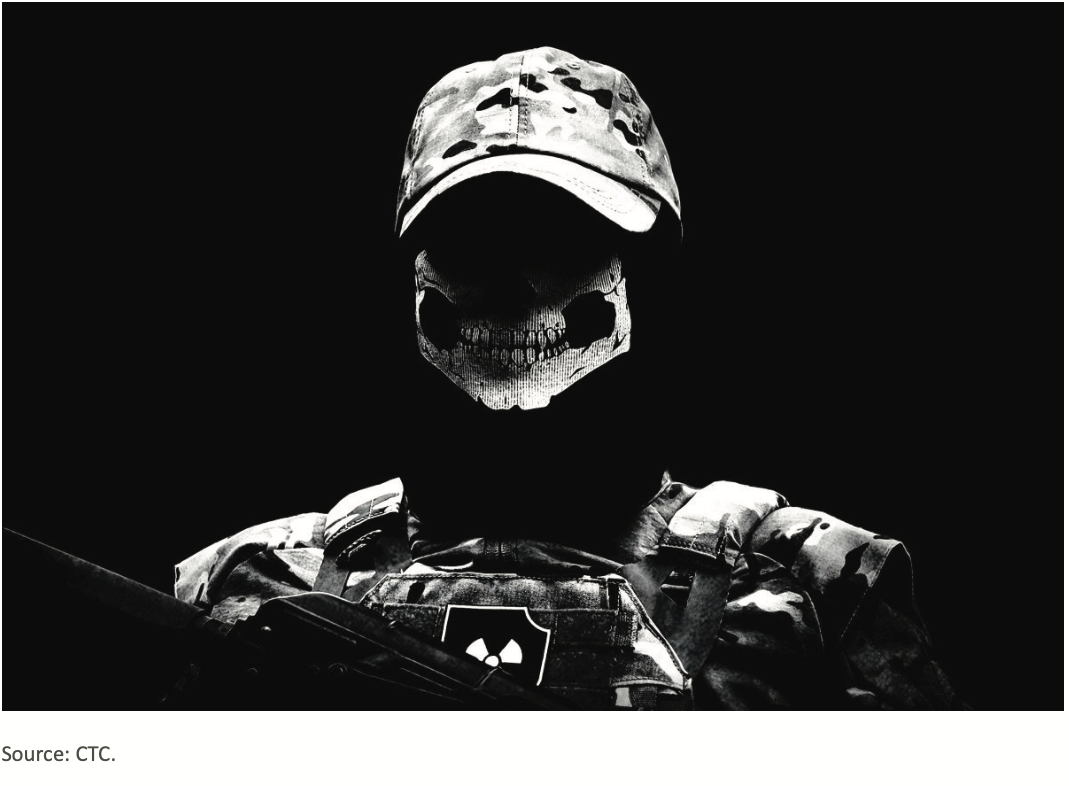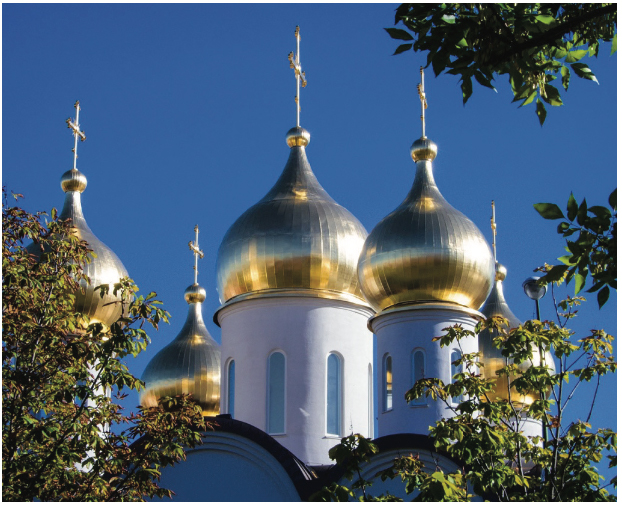
1) The Skull Mask is a far-right religio-political network that has migrated from online to offline activism and acts of violence. The network’s ideology is a hybrid based on the work of the philosopher Julius Evola, who combined fascism with “Traditionalism,” a syncretic 20th century religious movement mixing occultism with the Hindu doctrine of cyclical time and a belief in a now-lost primordial European paganism. Adherents believe that a caste-based, racially pure “organic” society will be restored aeer what they believe to be an ongoing age of corruption is swept away in an apocalyptic war, and that it is their role to hasten the end by engaging in violence. The network emerged from the far-right Iron March online forum that existed from 2011 to 2017 and served as the incubator for several prominent far-right groups to emerge, such as Feuerkrieg Division and The Base.
The members of the diffuse network come mainly from Europe and the U.S. They have introduced rituals involving violence and initiation that borrow from paganism and other traditions to socialize members into violence and create a shared sense of commitment to militancy. “Together with constant communication among members, these factors allowed the network to survive the loss of Iron March as an organizing platform and the subsequent transition to a more diffuse mode of organizing…. The local groups have proved transient, but the skull mask network’s collective identity persists, allowing the network to evolve in response to external pressure from law enforcement.” The disparate groups in the network have planned terror agacks and, in one case, have attempted to create cross-ideological coordination with jihadis. Ethan Melzer, a former private in the ti.S. Army affiliated with the skull mask group Rapewaffen, was arrested in Italy in the summer of 2020 for his alleged involvement in a plot to attack an overseas ti.S. military base, and was in contact with Al Qaeda. (Source: CTC Sentinel, December).

2) The formation of the Exarchate of Africa by the Russian Orthodox Church is the latest episode in the reverberations of the Ukrainian crisis for world Orthodoxy. At its meeting held on December 29, 2021, the Holy Synod of the Russian Orthodox Church decided to form a Patriarchal Exarchate of Africa with two dioceses (North Africa and South Africa), and to receive into the Russian Orthodox Church 102 clergy of the Patriarchate of Alexandria who had applied for such a transfer, along with their parishes from eight countries in Africa. This unprecedented move is a reaction to the decision made in late 2019 by the Greek Orthodox Patriarchate of Alexandria to recognize the autocephalous Orthodox Church of Ukraine (in competition with the Ukrainian Orthodox Church of the Moscow Patriarchate) that had been formally recognized the same year by Ecumenical Patriarch Bartholomew of Constantinople and his Synod. The Moscow Patriarchate already broke with the Ecumenical Patriarchate in 2018 over the lager’s approval of the church’s independence.

The latest move by the Moscow Patriarchate is significant insofar as (in contrast with other parts of the world where multiple Orthodox jurisdictions coexist) no other mainstream Orthodox church has created any diocese on the African continent since it was recognized as a canonical territory under the Patriarchate of Alexandria. Metropolitan Leonid Gorbachev of Klin, who will head the new exarchate, expects more clergy to apply and transfer their parishes out of the Patriarchate of Alexandria in the future. He does not rule out the possibility that additional dioceses will be formed under the Exarchate of Africa if there is such a need. According to Peter Anderson, a long-time observer of developments within the Russian Orthodox Church, the Moscow Patriarchate may be trying to show how far it is willing to go in case other Orthodox churches might be tempted to recognize the Orthodox Church of Ukraine. The move may also be used as a bargaining chip in relation to the situation in Ukraine. (Source: RIA Novosti, December 30; analysis by Peter Anderson, December 29: hOps://www.unifr.ch/orthodoxia/de/ dokumentation/anderson/)